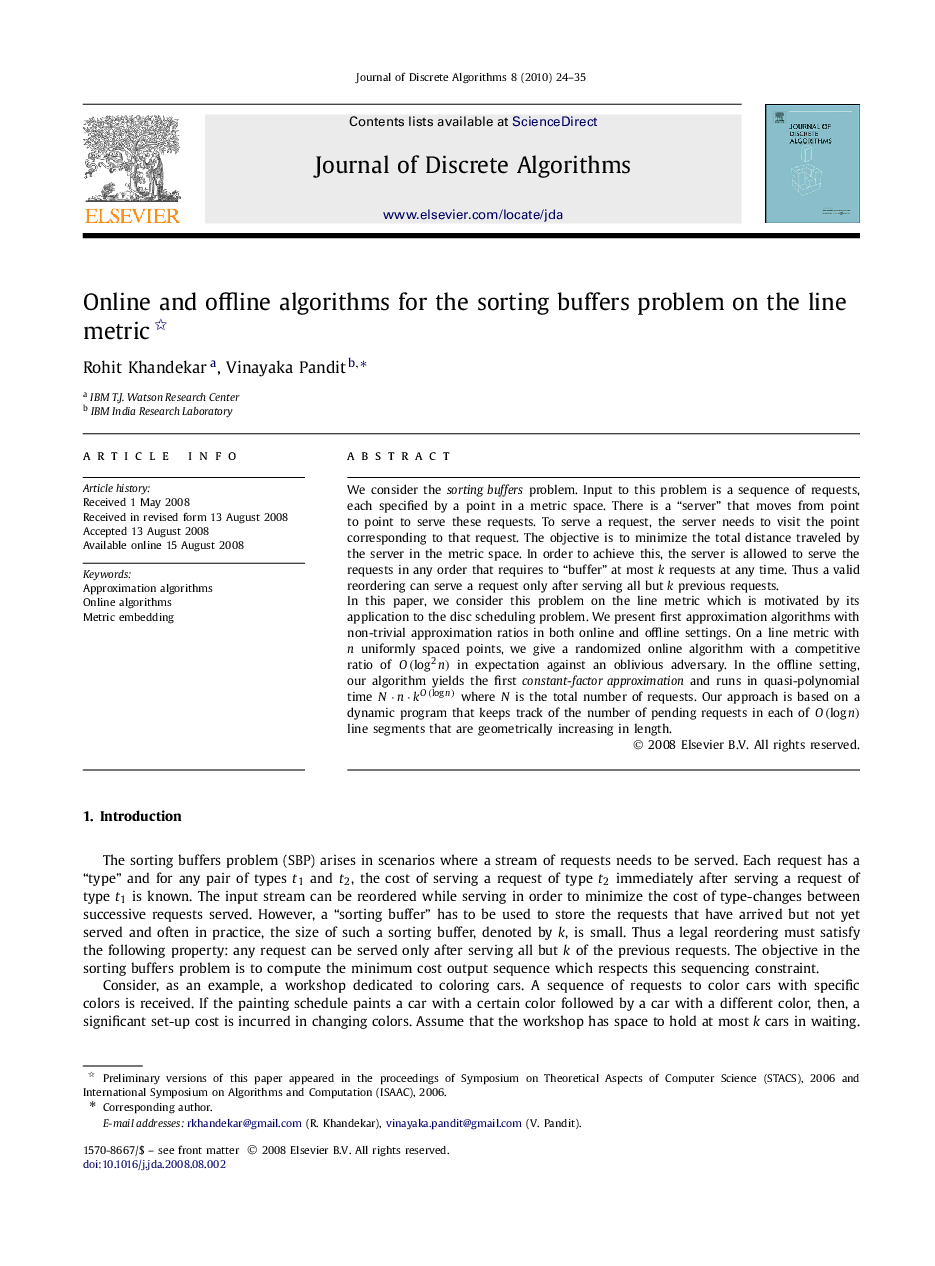| Article ID | Journal | Published Year | Pages | File Type |
|---|---|---|---|---|
| 430629 | Journal of Discrete Algorithms | 2010 | 12 Pages |
We consider the sorting buffers problem. Input to this problem is a sequence of requests, each specified by a point in a metric space. There is a “server” that moves from point to point to serve these requests. To serve a request, the server needs to visit the point corresponding to that request. The objective is to minimize the total distance traveled by the server in the metric space. In order to achieve this, the server is allowed to serve the requests in any order that requires to “buffer” at most k requests at any time. Thus a valid reordering can serve a request only after serving all but k previous requests.In this paper, we consider this problem on the line metric which is motivated by its application to the disc scheduling problem. We present first approximation algorithms with non-trivial approximation ratios in both online and offline settings. On a line metric with n uniformly spaced points, we give a randomized online algorithm with a competitive ratio of O(log2n)O(log2n) in expectation against an oblivious adversary. In the offline setting, our algorithm yields the first constant-factor approximation and runs in quasi-polynomial time N⋅n⋅kO(logn)N⋅n⋅kO(logn) where N is the total number of requests. Our approach is based on a dynamic program that keeps track of the number of pending requests in each of O(logn)O(logn) line segments that are geometrically increasing in length.
